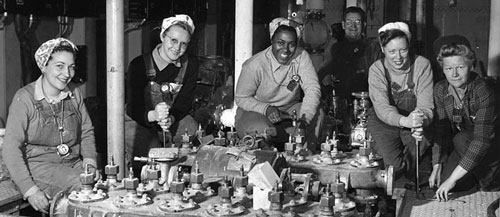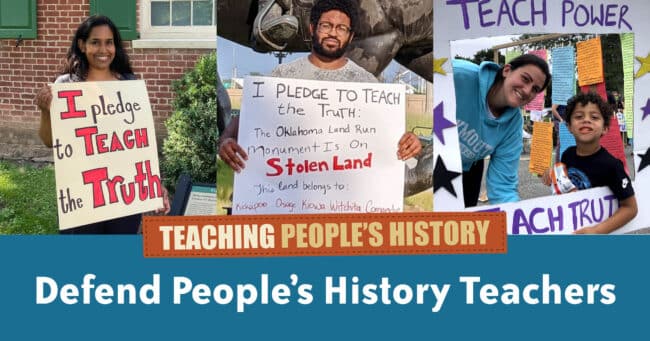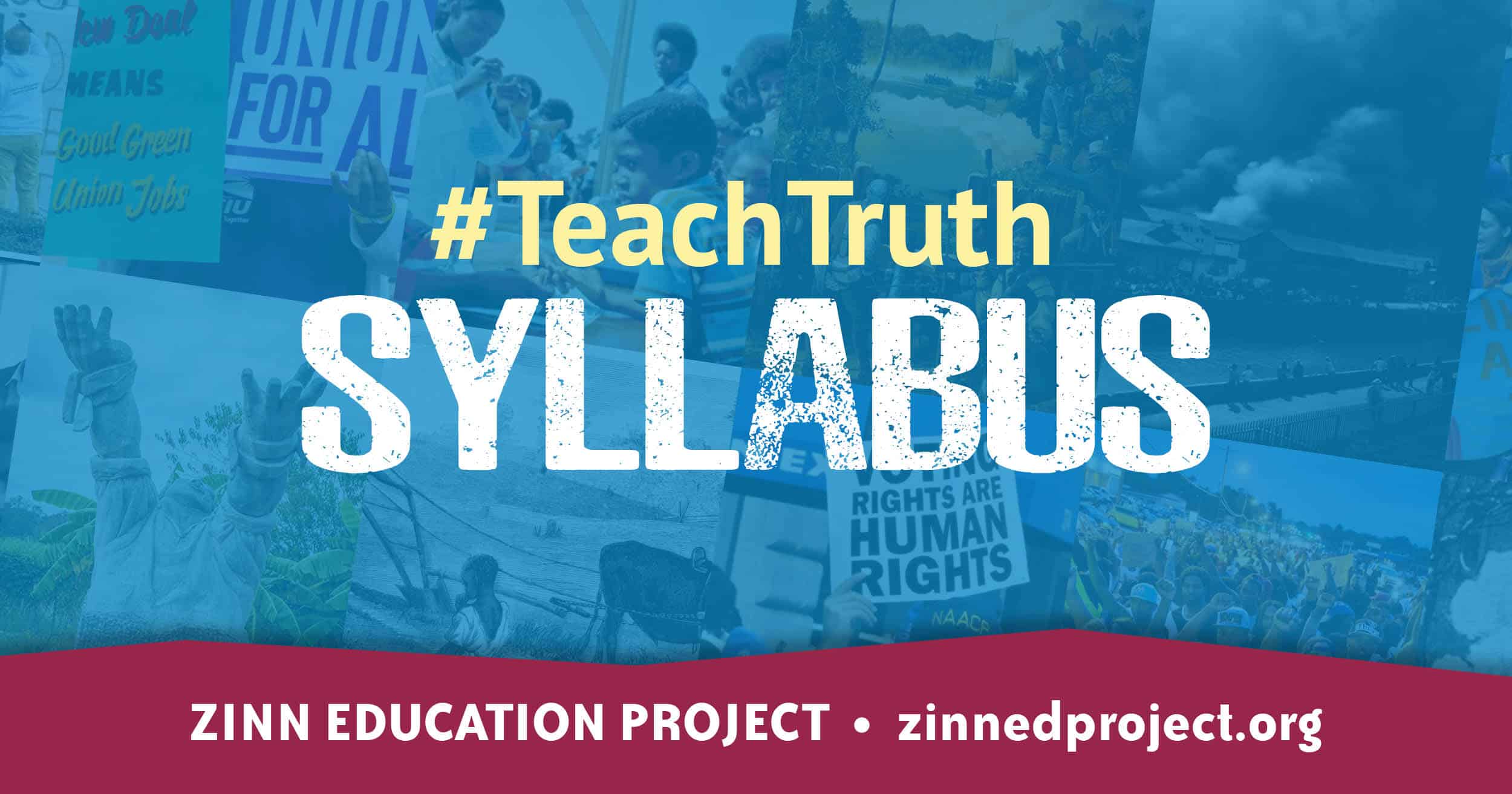How wonderful and needed is the work of the Zinn Education Project! Keeping our history from being smudged out — now more than ever.
Pittsburgh middle school teacher Kipp Dawson donated to our campaign to raise $1,000 to post a set of role plays from the book Power in Our Hands on the history of organized labor in the U.S.
Kipp wrote:
I am contributing in memory of my mother, Ann Dawson (bio below), and her sisters among the Rosie the Riveters and Steel Workers Organizing Committee whose real history also could be lost were it not for Zinn Education Project and the teachers and students and historians it brings together and empowers.

Women shipfitters, 1943. Ann Dawson on the right. Source: WikiCommons
Kipp was also moved to contribute in response to the media coverage of Nelson Mandela’s death. She explains:
The drive to “sanitize” Mandela’s and work and rob it of its essence, reminded me in a deep way of the importance of the Zinn Education Project. When they saint-ify Mandela, and rob history of the powerful struggle of masses of people which ended apartheid, history is turned into a parody, and we all are robbed not only of our past, but of our future.
The Zinn Education Project is our most powerful weapon in the ever more essential struggle for our history, without which our future cannot be built. This week has convinced me of how important it is to donate to the Zinn Education Project, to keep people’s history from being stolen and erased.
Kipp has donated over the years, often multiple times throughout the year, noting,
Under today’s circumstances, one contribution to the Zinn Education Project is not enough, so here’s another. THANK YOU for the invaluable work you are doing.
Join Kipp with a donation to teaching people’s history.
*Ann Dawson
Here is a brief bio of Ann Dawson, prepared by Kipp for her middle school students as part of an oral history project on the Depression.
My mom was five years old when the Stock Market crashed in 1929. She was living in California with her widowed mother and her sisters, Milly (Miriam) and Ruth. Her mom already had been through a great deal, having emigrated to the U.S. from Poland about 13 years earlier, and then having her husband murdered in Erie, Pennsylvania by Ku Klux Klan-type anti-foreigners, anti-Jews, anti-socialists, anti-union (especially coal miners union) supporters, anti-opponents-of-lynchings and racism—all of which both my grandmother and her husband were. Now here she was, my grandmother, raising three children on her own, and boom! She is one of millions who lost her job, and her home.
My mom’s mom, my grandmother, was resourceful. For a while, she and her daughters lived in their car. They drove across the United States to stay for a bit with my grandmother’s sisters in New York. As others have said, in those days, everyone was poor, and people looked out for one another in ways that would seem unusual today. My mom told me that they would drive all day, and when it began to get dark, they would find a telephone booth with a phone book (things young people today may not know about). My grandmother would go through the phone book looking for Jewish-sounding names. When she found one, she’d spend a nickel to make a phone call. It always happened that on the first or second or third such call, the stranger on the other end of the phone would respond to her in the Yiddish she was speaking, recognizing the plight of the widow with three children, and would offer them shelter for the night. The next morning, off they’d go again.
Within a few years after the Depression began, my mom would say, people really started working together to help one another out, and to organize big-time solidarity actions. At first, my mom and her family (having returned to California, where my grandmother found work translating and teaching) would be part of a good-sized group of people who would spontaneously organize to block landlords and police from kicking people out of their apartments or homes when they had stopped paying rent. As my mom would say, everyone realized that they could be next. It was just natural, she’d say, that people would help one another out.
That spirit became part of the movement all over the United States to organize unions — in factories and other places where workers needed protection from arbitrary bosses. My mom’s face would light up when she talked about joining picket lines of strikers working to get their union recognized, and to get job protection and higher wages for themselves and others. Nothing would make her prouder than to talk about how the unions shut down all of San Francisco, as well as much of the West Coast, in the General Strike of 1934. She turned 10 that year, and loved the excitement of so many different kinds of people standing together and refusing to go to work until the longshoremen who loaded and unloaded ships, and the other striking workers, got their unions recognized, and their rights respected. I grew up in a union household full of that pride, and that certainty, that when people stick together, all kinds of things can be made better for everyone.
Before the Depression ended, my mother dropped out of high school, as did so many others of her generation. She was the youngest of the sisters, and was determined not to be a burden on them or on her mother. She wanted to work to help support her family. This was common during the Depression. She was one of many who had to work to pass the tests for a GED (General Education Degree) much later — after her own children were grown and on their own. She got jobs in factories, and was one of the Rosie the Riveters who worked in the war industry when World War II began. She married my father during the war, and because he was stationed in the United States, she followed him from base to base, volunteering to drive a Jeep for the army. But that’s another story.









Wonderful history. Thank you for sharing.